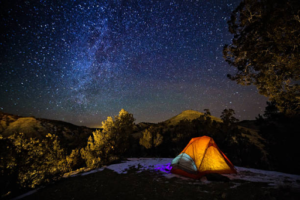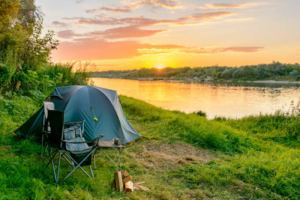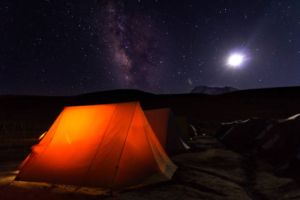Camping is all about spending time in remote areas, swimming in lakes, and taking showers under waterfalls. However, it is strongly advised to use proper caution when camping in forests; otherwise, the trip may prove to be dangerous.
There are locations explicitly designated for setting tents so campers can spend the night safely in forests. Once you have the necessary tools, all that’s left to do is pick the ideal campsite or family campgrounds where you can unpack your bags and rest. Therefore, we have compiled a list of tips for picking a campsite in a forest. But first, let’s talk about the essentials you need while venturing into the wild:
Outdoor Subscription Box
Camping subscription boxes are available to ensure you have everything you need and introduce you to items you didn’t even know you needed, but that will undoubtedly make life in the wilderness much more pleasant. Experts curate these boxes, and you can get their subscription on monthly or quarterly bases.
Providers such as BattlBox offer the best monthly outdoor subscription boxes in 2022, with their outdoor subscription boxes divided into four categories. These categories range from basic to pro plus, and you can select the one that is most appropriate for you.
Tent
Whether you prefer to sleep under the sky, you must always keep a tent or other type of emergency shelter on hand. Otherwise, you’ll be soaked, miserable, and at risk of hypothermia in a midnight downpour, freak snowstorm, or heavy dew.
Sleeping Bag
Although it may sound enjoyable to sleep on a bed of moss and leaves, it won’t keep you warm at night. At dusk, temperatures can fall sharply, sometimes by 20 degrees or more. Additionally, keep in mind that insects are more active at night and might come across your unwrapped body. Having a sleeping bag on hand will ensure that you have a good night’s sleep.

Tips For Picking a Campsite:
Find Level Ground
You might have a difficult time than others finding level ground depending on where you are, but once you do, you’ll be grateful that you did. Level camping locations will help to keep items from rolling away. Additionally, sleeping on level ground will make you feel much better than waking up with your feet slightly higher than your head would.
Look for Water Supply
Your group’s hydration during camping trips is among the essential considerations. You’ll be sweating a lot, so regularly drinking water. Find a spot close to a natural freshwater body if you aren’t camping on a site with a water supply. Locate a clean river, lake, or pond.
Avoid Setting Up Under Trees
Never camp underneath a tree that has dead branches. A group member might get hurt or killed if large branches fall on them. Additionally, you should avoid loose rocks. Before camping, learn as much as you can about the local trees and hiking trails. Look to see what kinds of trees are nearby and whether they have a history of falling branches.
Check the Sun’s Position
Planning your camping sites around the sun has no right or wrong answer. It all depends on your preferences and those of your group. If you wish to watch the sunrise or sunset, position yourself so that you can get the best view

Prepare for Critters
Every camping location has its particular set of animals, mosquitoes, packs of raccoons, and the occasional wild bear. You’ll be more prepared if you do some research before your trip. It is best to avoid game trails and any areas with numerous nests. Also, keep bug spray close by, and never leave open food or drink containers unattended.
Avoid the Bathroom Area
Most people believe that setting up near a bathroom is a wise decision but later regret it. Bad smells can travel fast, especially in a busy campsite. Be close enough to the toilet to use it quickly if necessary but far enough that you don’t have to smell bodily fluids all night. You’ll also want to avoid trashcans and dumpsters.
Understand the Rules
There are various rules for different camping areas. To avoid breaking the rules, getting into trouble, and paying fines, conduct your research in advance. Specific permits are needed in some locations for camping and fires, and a reservation must be made in advance. Some campgrounds may even refuse to accept new guests because they are so crowded. It is recommended to always have a backup option in mind in case your preferred course of action is unsuccessful.

Conclusion
You must choose a good campsite if you want your camping trip to be enjoyable and memorable. When deciding where to spend the night, several factors are taken into account. Select a location with even ground, free of dead branches and loose rocks. Keep an eye out for the nearest water source and be ready for any potential wildlife and weather. Most importantly, remember to have fun.
Read more interesting articles at adminwells
